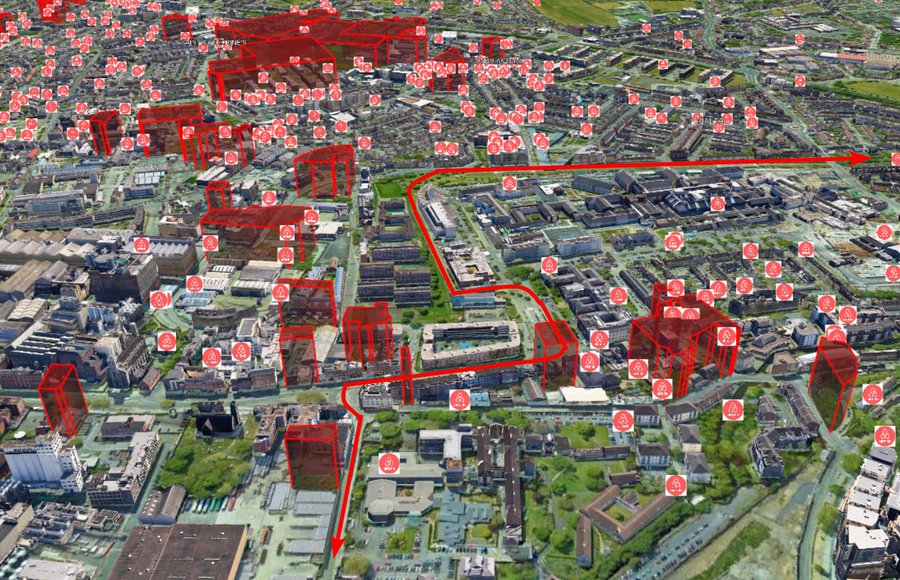Video graphic shows the “gateway of dereliction” in Dublin
 Image: @RobCross247 on Twitter
Image: @RobCross247 on Twitter
Video graphic shows the “gateway of dereliction” in Dublin
Words: Ellen Kenny
A man has created a video showing all the vacant properties and Airbnbs in Dublin, and it’s not pretty.
Author and architectural designer Rob Cross has created a video graphic showing all the vacant sites and Airbnbs in the city. We all know the figures- 7,995 vacant houses and 16,321 vacant apartments in Dublin city centre, along with 3,786 Airbnbs. However, seeing these figures come to life in this video is jarring:
According to Rob, the Red Luas line essentially runs “via a gateway of dereliction” due to the sheer amount of empty properties across the line.
Rob has also pinpointed the amount of vacancies in some of Dublin’s most well-known, such as Heuston Train Station, Dublin Castle and Phoenix Park.
As Rob explains, 70 per cent of all residential zoned vacant sites in Dublin are owned by Dublin City Council or are state controlled.
When it comes to Airbnbs, there is a growing trend among Dublin landlords to offer properties on websites like Daft.ie “from Monday morning to Friday afternoon”. Those same properties then appear on Airbnb for tourists at the weekend, forcing tenants out of their rentals.
Tax on vacant properties
The recently-announced Budget 2023 included measures to address the level of vacancy in Dublin and Ireland. The budget introduced a higher tax on homes that are occupied for fewer than 30 days in a 12-month period. However, there are many exemptions to this tax that landlords can use to avoid the tax altogether.
Grounds for exemption include that the vacant property was recently sold, it is listed for rent or for sale, the property is vacant due to refurbishment, or the property is vacant due to an occupier’s illness or long-term care. Properties officially labelled as “derelict” are also exempt from the tax.
So there is nothing to stop a vacant property owner putting their property on Daft.ie for rent, but never actually renting it out. Or a landlord claiming that they’re simply taking five years to refurbish their one bedroom property. Not a fool-proof measure by any means.
Elsewhere on District: What does Budget 2023 do for me?
